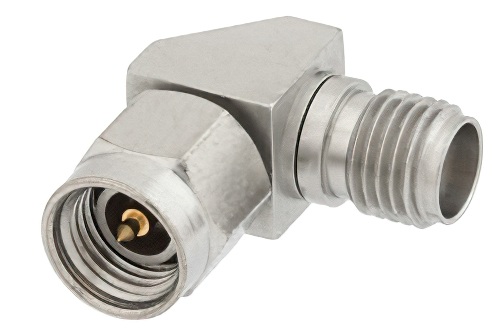
Coaxial Connector Adapter Dynamics
The number and type of coaxial connector standards, both open and proprietary, is steadily growing. The growth and diversity of coaxial connector standards is partly fueled by the growing diversity of wireless applications and the penetration of RF technologies in virtually every market. This is why Coaxial connector adapters, a subset of RF adapters, are necessary for many applications. There are many connector types that are often used for certain applications, which makes mating between these connector types necessary. If an appropriate coaxial cable assembly with the right connector types on each end is available, then no adapter is needed.
However, it is more common for an organization to have coaxial assemblies with the same connector types attached. It is possible to have custom coaxial cable assemblies to be manufactured that have the exact connector types needed and minimize the interconnect complexity. In cases where these custom cables are not available, Coaxial connector adapters for common connector types are useful to have on hand. It is also likely helpful to have coaxial adapters for common connector types and uncommon connector types or special use connector types. For instance, SMA, N-type, 2.92mm, 1.85mm, 3.5mm, and BNC are common coaxial connector types with threaded or bayonet connections. It is often useful to have adapters that bridge these common types. But also, it is useful to have adapters from these common types to others, such as push-connect types used on circuit boards either as surface launch or end-launch, such as SMP, SMB, MCX, SSMC, etc.
Having adapters for D-sub and other connector type adapters and SMA or other common connector types used in test and measurement, such as N-type, may also save time and interconnect complexity during testing or evaluation. For most communication, sensing, and test scenarios, it is most advantageous to have the minimal interconnect complexity. This reduces loss and enhances repeatability and reliability at a system level, especially with sensitive test and measurement use cases. Hence, it is often useful to have an array of coaxial connector adapters available that match the mix of connector types used in a given project, testing, or laboratory environment. In some cases, coaxial adapters can be used to protect ports of expensive or sensitive equipment from wear-and-tear or damage. For example, it is common for test engineers to use RF adapters at the ports of test equipment where these ports are often cycled to prevent mating cycles on the connector ports of the actual equipment. This can extend the lifetime of the equipment and minimize downtime associated with equipment maintenance.




 Pasternack Blog
Pasternack Blog
